- Home
- Roger Taylor
Whistler [A sequel to The Chronicles of Hawklan] Page 12
Whistler [A sequel to The Chronicles of Hawklan] Read online
Page 12
The Congress was not an ideal forum for temperate debate at the best of times and the fate of the two Madren soon became a shuttlecock to be buffeted about the chamber as the various factions sought to score points against one another. An official Madren observer stormed out of the chamber in a fury before the debate had ended, and demanded a formal apology and compensation for the families of the two men from the Tirfelden government. In the face of the man's considerable anger this was promised, but when he had left, it became, in its turn, the subject of another Congress debate. Although this new debate was a little more sober than the first, it was not without national indignation at what was regarded as the high-handed manner of the Madren civil servant, and the offer of compensation was reduced. By this time the matter had reached the ears of the Sheeters and a wide variety of gory tellings of the incident were being distributed about Canol Madreth. News of the Tirfelden Congress's unsavoury haggling amplified these tellings and as a result of being repeatedly told of the public's outrage at this affair, the Heinders began to feel themselves under pressure to ‘do something'.
In reality there was little or no such pressure. Those who read of the affair responded in many ways, ranging from indifference to genuine concern and sympathy, but few pestered their Heinders to take any kind of action. And, it could not be denied, such sympathy as was felt was tempered by the fact that the two men, ‘had been drinking, after all ...’ with all that that implied. Retribution for one's sins was a strong element in Ishrythan. However, folly begets folly, and in responding to something that was not in reality there, the Heindral succeeded in creating a genuine crisis for itself.
The term of the government was well into its second half and thoughts were already beginning to turn toward the next Acclamation when the Tirfelden incident occurred. Thus, as in the Tirfelden Congress, the matter became an opportunity to jockey for position in the eyes of the voting public. The party in power, the Castellans, unexpectedly mooted the idea of expelling any Felden currently resident in Canol Madreth and seizing Felden assets. This was a bold gesture, delivered with great panache, and would undoubtedly resound well when the voters were being wooed in due course. It was put forward however, only in the fairly certain knowledge that the other two parties would, for once, unite and vote against it. And indeed the main opposition party, the Ploughers, played their part admirably, speaking in powerful but calmly measured tones, and dwelling on the outrage that ‘they too’ felt about the fate of ‘this highly respected merchant'. However, scared senseless at what they thought the Castellans wanted to do, they suggested that a ‘more effective and even-handed measure’ would be to refrain from trading with Tirfelden, on the grounds that the Felden needed timber more than the Madren needed iron. For a while there was some robust debating, the Castellans being pilloried as dictatorial and even war-mongering, while the Ploughers were labelled as naive appeasers and cowards and quite indifferent to the fate of the people who worked in the forestry trade. Then the leader of the third and smallest party began to speak.
The Witness Party had been the smallest for many decades now, and such power as it had wielded from time to time had been dependent on how nearly equal the other two parties were. Unlikely ever to hold real power in the near future, it had the privilege of advocating outrageous ideas, but it knew its place and would not resort to anything foolish when matters of importance were being discussed. What was special about the Witness Party was its religious element. Unique amongst the parties it actually had Preaching Brothers in its ranks, and it would unrepentantly point out the moral and religious aspects of any subject being debated. Its speakers were often greeted with heartfelt sighs of dismay as they rose.
Now there was an affectedly respectful silence as Toom Drommel stood up to outline his party's view. Expectation filled the chamber—expectation that Drommel would castigate the Castellans for their belligerent proposal, with its appalling disregard for basic justice in seeking to punish Felden citizens who, quite patently, had had nothing to do with the murder of the merchant and were entitled to look to the Madren authorities for protection not persecution. He would then turn on the Ploughers to reproach them for their economic naivety in imagining that loss of trade with Canol Madreth would make any material impression on Tirfelden. Finally, he would conclude that his party would vote against both suggestions, thereby releasing both parties from the need to do anything without seriously undermining his own party's standing. The matter would then drift out of the public limelight and be sorted out by officials from the respective governments.
Quite unexpectedly however, Toom simply said, ‘We shall support the Castellans in their proposal,’ and then sat down.
For a moment it seemed that the Castellans were about to lose their leader as he turned first red then purple, but somehow he survived the blow and was on his feet in seconds.
So was everyone else.
Privv, high in the spectators’ gallery, rubbed his hands gleefully. He knew quite a few Felden and he could see stories developing that would last him for weeks—and make him quite a lot of money in the process. He saw what the Ploughers and the Castellans had failed to see, namely that while Toom Drommel and his party had no great desire to be associated with either the economic ineptitude of the Ploughers, or the strutting posturing of the Castellans, they also had no desire to be seen as a party that could not make up its mind, or take a stern stand where the safety of Madren citizens was at stake. They had therefore decided to call the Castellans’ bluff. For in supporting them, the Witness Party would appear to be strong and resolute in the defence of their country's citizens abroad—a very useful attribute to be displaying during the approach to an Acclamation, while at the same time showing the Castellans to be weak and uncertain. For there was no way in which the Castellans could implement their proposals without causing a major rift with Tirfelden ... a much larger and wealthier nation.
Privv waited for the inevitable outcome. When the uproar subsided, the leader of the Castellans would end the debate without a vote and scurry off to a panic-stricken meeting with his party officers to try to find some way of extricating himself from this problem without the retreat being too public or too humiliating.
Toom Drommel sat with his arms folded, quietly smiling to himself, and Privv observed him intently. He had misjudged this man. He had always regarded him as another bigoted pain in the neck, but there was obviously much more to him than met the eye. He had judged the Castellans’ complacency and political carelessness to a nicety and had done them no small amount of harm with his brief statement. He had also done his own party a great deal of good. As he watched the man, sitting motionless amid the hubbub, it dawned on Privv that Toom Drommel was a force to be reckoned with. And he really was going to push his party forward at the next Acclamation. Interesting times were coming, Privv thought to himself. Interesting times.
* * * *
The church's only declared interest in the affair of the slaughtered merchant was one of simple compassion for the man's family. It had, of course, a permanent and considerable interest in all political developments, but it was discreet, not to say meticulous, in ensuring that it was seen to be above any petty power chasing, and in this case it confined itself to watching and weighing events.
Apart from taking due note of happenings in the Heindral and dealing with routine church business, two other topics were occupying the attention of Mueran and his staff at the Witness House. One was the change that had come over Cassraw, and the other was the change that had come over Vredech. Where before, the mention of Cassraw's name had brought a weary frown to Mueran's brow as he braced himself for yet more complaints from the Haven flock, or another diatribe on the Santyth from the man himself, it now brought a pleasant smile. Complaints had changed to compliments. Since his strange ‘attack', Cassraw seemed to have become a different and much more amenable person, and he was proving himself to be a worthy incumbent for the Haven Parish. He had seemingly set aside his growing obsessi
on with the minutiae of the Santyth and was throwing himself wholeheartedly into his pastoral work, moving around tirelessly, helping and advising members of his flock, talking to them, listening to them, whatever the circumstances required. And his preaching was becoming almost legendary. Attendances at his Meeting House were higher than they had ever been, as backsliding church members returned to the fold and people travelled from other parishes to listen to him. He had even established a special organization to look after the needs of a group of troublesome youths who had been the bane of the area for some time. Mueran had some reservations about the name that had been chosen for this organization—the Knights of Ishryth—but Cassraw had laughingly reassured him. ‘You know what young men are like. They have to look manly—if only in their own eyes. I doubt I'd have been able to catch their attention with a name like the Haven Parish Group for Santyth Appreciation.’ Then, a hand on Mueran's shoulder—firm and full of good-natured resolution—‘You needn't fret. They're a little wild, but they're all good lads at heart, and better we keep them occupied than leave them to their own devices.'
Yes, Mueran mused, Cassraw was shaping up nicely. He was back once again on the track which had seemed to be his from the outset—the track that could eventually make him Covenant Member. Mueran laid a great deal of emphasis on the word ‘eventually', however.
Vredech though, was a different matter. Since that same incident, the first complaints ever about him began to reach Mueran. Vredech was becoming morose, bad-tempered, lax in the performance of his parish duties. Some even hinted that his faith was less than sound. Concerned, Mueran called him to the Witness House and after a lengthy talk with him apparently diagnosed nothing more than tiredness. ‘Feeling for the pain of others is one of the more burdensome attributes we must bring to our ministry, Brother, but it carries a heavy price if we don't learn how to detach ourselves from it.’ He copied Cassraw's hand on the shoulder. ‘I think that what happened to Brother Cassraw the other week disturbed you more than you know, but he's fit and well now while you still seem to be labouring through the darkness. If you wish, I can arrange for a relief to take over for a couple of weeks to give you a rest, let you build up your reserves again.'
But Vredech smiled and declined the offer with thanks, at the same time promising to take note of Mueran's good advice and be a little less personally involved in the troubles of his parishioners. In reality, Mueran's offer of a relief shook him badly. The last thing he needed now was to be left alone to his own devices. Work was perhaps the only thing that was keeping him sane. Nevertheless, he had heard the serious undertones in Mueran's words and he knew that he ignored them at the peril not only of his future in the church, but even his Parish. This realization helped him to turn and face what was happening to him.
But what was happening?
That same evening, after his return from the Witness House, he sat alone before the cold ashes of a dead fire and determined to search into the cause of the darkness that seemed to have settled on him like a damp, clinging cloak. Certain things were obvious. The dominant one being that he was not sleeping well. He could not recall ever dreaming in his entire life, but sometimes now, when he closed his eyes, he would find himself looking at the dancing shadows that had surrounded him on the mountain. Black on black, they were like bottomless pits. He would open his eyes, fearful of what he might see or what might happen if they...
If they what?
There was no answer. Just the fear of some unknown consequence.
And he would hear again the din of that awful celebration; primitive, barbarous, stirring reaches deep inside him that should not be disturbed. Even now, his hands rose to his ears with a nervous twitch. What in Ishryth's name had happened on that mountain? What did it all mean? And why were these ... memories ... if memories they were, haunting him so?
Was he going insane?
'No, no,’ he muttered to himself. He was confused and angry—frightened even, he conceded—but insane, surely not. What he had seen he had seen, and what he had heard he had heard; he was sure of it, even though for some reason the others had not. He clung to reason. Insanity cast a shadow before it. He had had no fever, nor any other signs of physical illness, nor had he now, except for the dragging uneasiness in his stomach—though this, he knew from past experience, was because he was worrying. It would go when he had accomplished two things—found out what he was worrying about and done something about it.
He stiffened his resolve. He would remain in his chair that night until he had examined every aspect of that strange day and come to some conclusion. It would be a vigil. He prayed a little, but it was more from habit than true need and the words hung hollow and empty in his mind. That did not concern him too much. Ishryth was not an easy god, given to smoothing the way at the behest of any slight appeal. Ishryth helped those who helped themselves, and those alone. Vredech knew that only in his striving would he see the hand of Ishryth.
His resolution renewed, he closed the window shutters to lock out the night and then turned off all the lamps in the room save one, which he turned down until it gave out little more light than a solitary candle. It was a comforting light, however, turning his room into a cave of restful, clear-cut shadows. He leaned back in his chair and tried for a while to order his tumbling thoughts. After a few minutes however, he smiled slightly. Some lessons always had to be relearned. He had been through enough emotional and spiritual crises in his life to know what he needed to do, and struggling to control this tumult was not it! Not without some effort he abandoned the attempt and gave his thoughts free rein.
To an outside observer, Vredech was merely a man sitting alone and motionless in his chair—a man resting quietly after the toils of the day. Inside, however, a great flood was in spate as a roaring torrent of thoughts cascaded through his mind. He made no effort to stem it.
Let it run.
Let it run.
There would be no conclusion, he knew. This was not the ordered sorting of facts and events, this was a painful, frightening changing of the landscape. When it had passed, all would be the same and yet different. He would see more, and clearly. And even if he did not like what he saw he would look at it squarely. See things as they are.
There passed a wretched, wrenching time, but finally the flood was gone.
Vredech woke with a slight start. He had no recollection of when he had drifted into sleep, or what he had been thinking about last. All he had was a lingering impression of a sound, a note, fading into the distance.
He felt drained. His hands were trembling slightly, and as he raised one to his brow he realized that he was perspiring. He let his eyes drift about the room, just content to rest for a moment after his peculiar, effortless ordeal. The shadows reshaping his room swayed as the lamp, its light a little too low, guttered slightly. This is a good place to be, he thought, and a true prayer of thanksgiving formed inside him.
Then he resumed his quest, turning his mind back to the darkness that had covered the Ervrin Mallos. The shadows, the noise, the cold presence that had probed and then discarded him—whatever else they had been, they had been real. He was still resolute in that. They were no figment of his imagination brought on by exhaustion or concern for Cassraw. His hand tightened about the arm of his chair. They had been as real as this chair. Either that or he was totally insane and, by definition, he could do nothing about that. And he could not avoid the feeling that Horld had seen or felt something too, though he had no idea how he might raise the matter with him.
But if they were real, what were they? And what did the whole thing mean? It had not been, as Cassraw had ranted, a visitation from Ishryth. Judgement Day! The words and his own response to the clouds at the time mocked him now. He and the other Brothers had all behaved like primitives, cowering in their caves when lightning tore the sky apart and thunder declaimed a measure of their insignificance. Amongst other things, that particular response had been theologically unsound. The passages in the Santyth that r
eferred to that dread day spoke not of darkness but of a searing light and, in any event, they were written in so strange a manner that some scholars had even suggested that they could be interpreted as meaning that the day was so far in the future that it might be the distant past. A bizarre, oddly disturbing idea. And, on less academic grounds, of course, everything was still here, life continued. Further, he had no reason to doubt the long-established principle of Divine Intervention—or Divine Non-Intervention—Ishryth did not perform tricks for the edification of the childish and the gullible. These apart, it was the all-too-human attributes which had pervaded everything that convinced Vredech that something other than Ishryth's will had been at work that day. But as to what, he was no nearer to an answer. And whatever else it had been, it had been a visitation of unbelievable power.
Vredech stared fixedly at the ashes of the now dead fire. Nothing came to him. All that had happened had been quite beyond anything in his experience.
For a while, bleakness descended on him and everything about him seemed to take on the grey barrenness of the ashes in front of him.
Then something stirred again. Unable to pursue his reasoning further, he would have to look elsewhere. He would have to look at what the consequences of the day had been. He would have to turn his mind towards the centre of the disturbance—to his friend; to Cassraw.
* * *
Chapter 11
The prospect made Vredech churn with guilt. The Santyth protested that men were Ishryth's greatest, most valued and mysterious creation. A man should not examine another as though he were some interesting insect or plant. Still less when that other was an old friend. But what else was to be done? Something had happened within the shade of that cloud which had affected him and affected him badly. How much more so then might Cassraw have been affected, who had already been disturbed when he had plunged into the heart of the thing with such demented enthusiasm? Others such as Mueran might be happy to regard the man who came down from the mountain as a considerable improvement on the one who went up it, but that was wrong. That was the easy way, the way of acceptance without inquiry, without testing. It was the luring shortcut that could lead only to the wilderness, to blindness and paralysis. Vredech recognized his father's influence leading his thoughts forward.

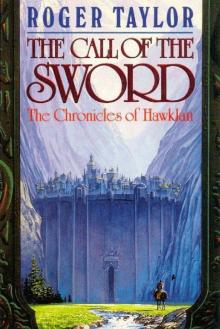 The call of the sword tcoh-1
The call of the sword tcoh-1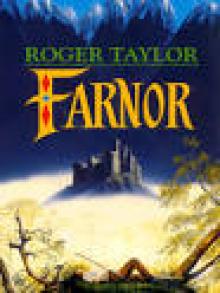 Farnor
Farnor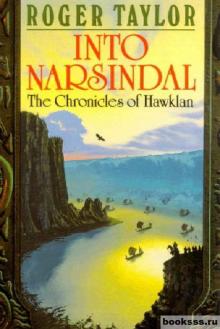 Into Narsindal
Into Narsindal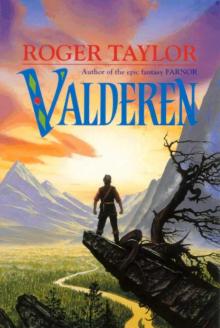 Valderen ft-2
Valderen ft-2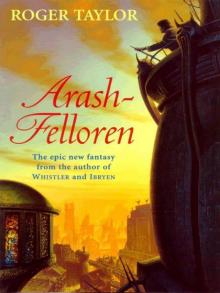 Arash-Felloren
Arash-Felloren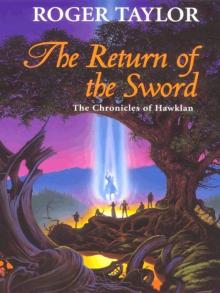 The Return of the Sword tcoh-5
The Return of the Sword tcoh-5![Ibryen [A sequel to the Chronicles of Hawklan] Read online](http://i1.bookreadfree.com/i1/03/26/ibryen_a_sequel_to_the_chronicles_of_hawklan_preview.jpg) Ibryen [A sequel to the Chronicles of Hawklan]
Ibryen [A sequel to the Chronicles of Hawklan]![The Call of the Sword [Book One of The Chronicles of Hawklan] Read online](http://i1.bookreadfree.com/i/03/24/the_call_of_the_sword_book_one_of_the_chronicles_of_hawklan_preview.jpg) The Call of the Sword [Book One of The Chronicles of Hawklan]
The Call of the Sword [Book One of The Chronicles of Hawklan]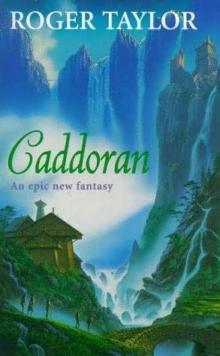 Caddoran
Caddoran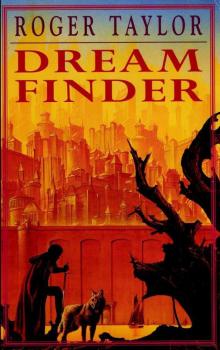 Dream Finder
Dream Finder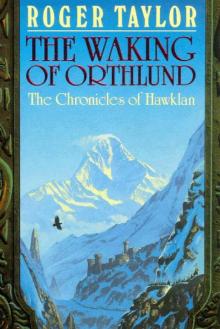 The Waking of Orthlund
The Waking of Orthlund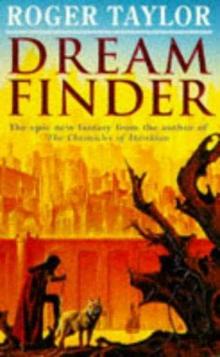 Dream Finder cohs-1
Dream Finder cohs-1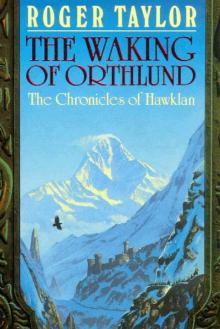 The waking of Orthlund tcoh-3
The waking of Orthlund tcoh-3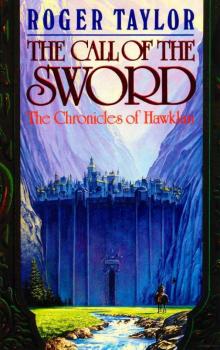 The Call of the Sword
The Call of the Sword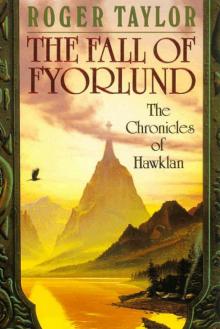 The fall of Fyorlund tcoh-2
The fall of Fyorlund tcoh-2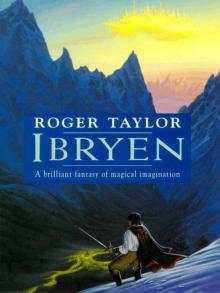 Ibryen
Ibryen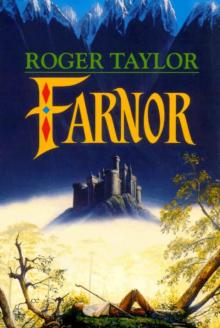 Farnor ft-1
Farnor ft-1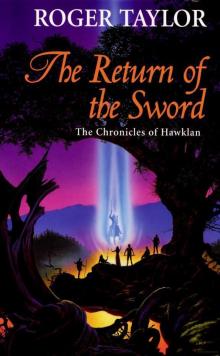 The Return of the Sword
The Return of the Sword![Into Narsindal [Book Four of The Chronicles of Hawklan] Read online](http://i1.bookreadfree.com/i2/04/06/into_narsindal_book_four_of_the_chronicles_of_hawklan_preview.jpg) Into Narsindal [Book Four of The Chronicles of Hawklan]
Into Narsindal [Book Four of The Chronicles of Hawklan]![Valderen [The Second Part of Farnor's Tale] Read online](http://i1.bookreadfree.com/i2/04/05/valderen_the_second_part_of_farnors_tale_preview.jpg) Valderen [The Second Part of Farnor's Tale]
Valderen [The Second Part of Farnor's Tale]![The Fall of Fyorlund [Book Two of The Chronicles of Hawklan] Read online](http://i1.bookreadfree.com/i2/04/08/the_fall_of_fyorlund_book_two_of_the_chronicles_of_hawklan_preview.jpg) The Fall of Fyorlund [Book Two of The Chronicles of Hawklan]
The Fall of Fyorlund [Book Two of The Chronicles of Hawklan]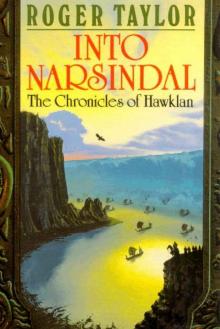 Into Narsindal tcoh-4
Into Narsindal tcoh-4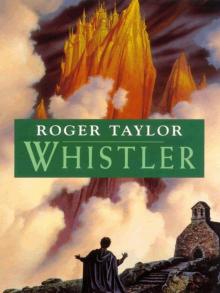 Whistler
Whistler![Whistler [A sequel to The Chronicles of Hawklan] Read online](http://i1.bookreadfree.com/i2/04/12/whistler_a_sequel_to_the_chronicles_of_hawklan_preview.jpg) Whistler [A sequel to The Chronicles of Hawklan]
Whistler [A sequel to The Chronicles of Hawklan]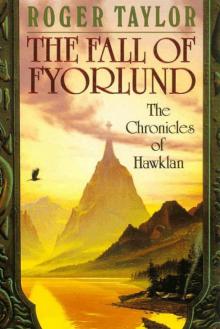 The Fall of Fyorlund
The Fall of Fyorlund![The Waking of Orthlund [Book Three of The Chronicles of Hawklan] Read online](http://i1.bookreadfree.com/i2/04/11/the_waking_of_orthlund_book_three_of_the_chronicles_of_hawklan_preview.jpg) The Waking of Orthlund [Book Three of The Chronicles of Hawklan]
The Waking of Orthlund [Book Three of The Chronicles of Hawklan]